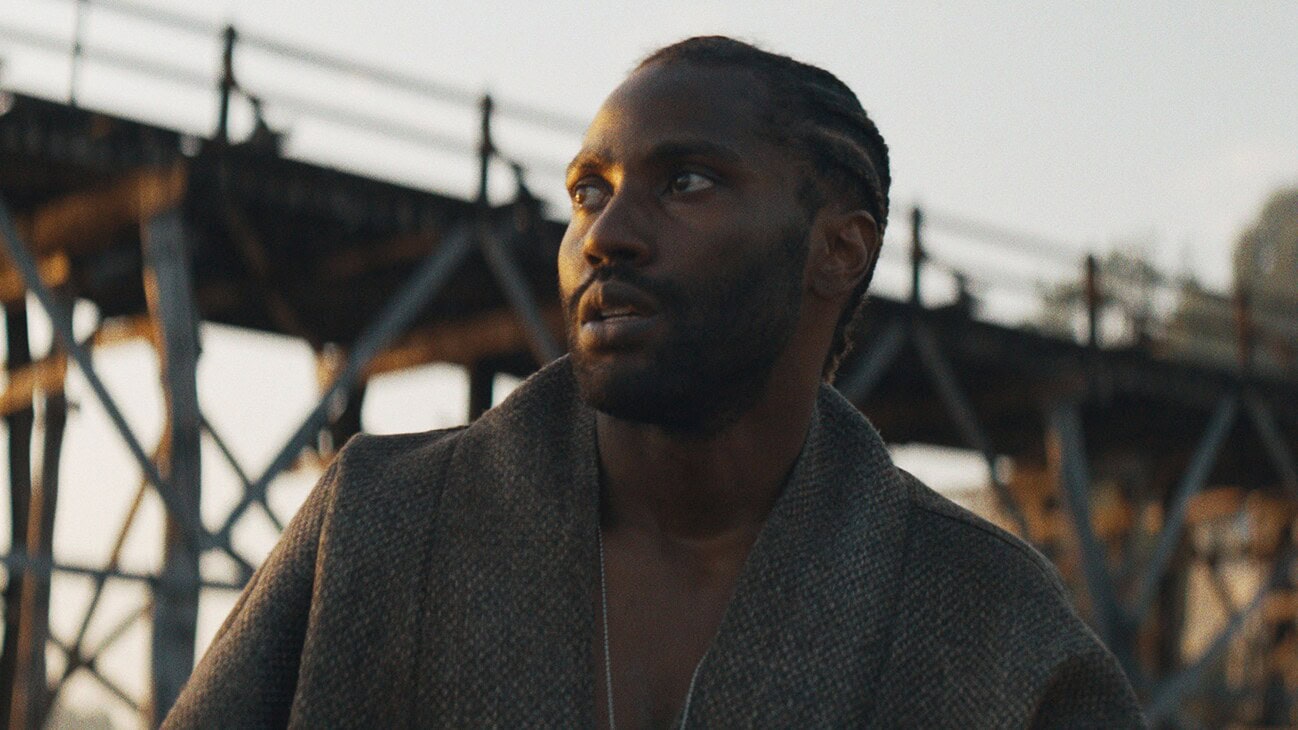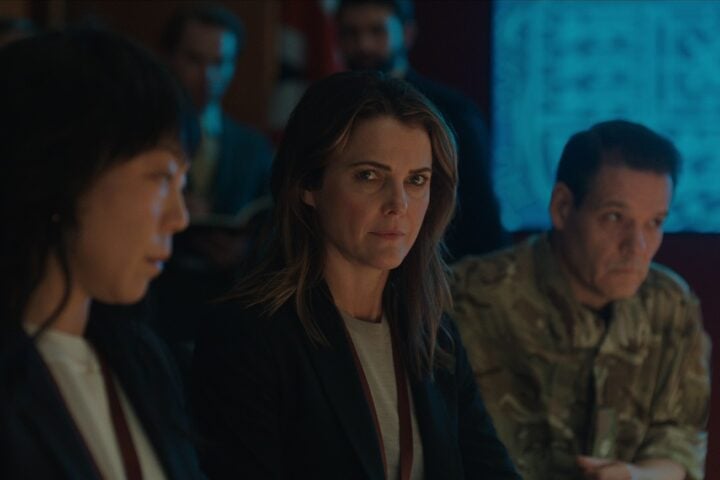The premise of Gareth Edwards’s The Creator—the United States declares war on A.I. after the programs it incorporated into commercial and military processes launch a nuclear warhead on L.A.—is right out of the dystopian playbook. The unique aspect to this telling is that while the West rejects robotics, the developing world doesn’t, leading to a massive conflict between the U.S. and “New Asia.” With much of the film set in Vietnam and Thailand, and Americans operating outside legal boundaries of war to conduct special-ops strikes on A.I. researchers and manufacturers, a heavily coded political element is added to the usual existential worries about the threat that A.I. poses to humanity.
Co-written by Edwards and Chris Weitz, the film focuses on one of these clandestine operations, at the center of which is Joshua (John David Washington), an undercover operative tasked with infiltrating the key research team behind a new A.I. superweapon by seducing a lead researcher, Maya (Gemma Chan). By the time we meet Joshua, it’s obvious that he’s already gotten in too deep, as he’s not only genuinely in love with Maya but expecting a child with her.
When his comrades attack Maya’s camp, Joshua is left devastated, questioning his commitment to his country’s cause even before his superiors book him for another assignment, this time to take down the A.I. On that mission, he’s confronted with this supposed weapon, which has taken the form of a synthetic child, Alfie (Madeleine Yuna Voyles). Too unnerved by the robot’s appearance and his own trauma to kill the thing outright, Joshua finds himself escorting Alfie behind enemy lines as he seeks to get to safety and to figure out the child’s nature and purpose.
Washington plays Joshua as a man who wears his heart on his sleeve, to the point that one questions the wisdom of assigning him to an undercover mission in the first place. Whether lingering over the rage of losing his family in the L.A. blast or agonizing over Maya being overrun by his own unit, the man is an exposed nerve. Alfie’s quizzical innocence and the obvious surrogacy she provides as the child that Joshua never got to have destroys what little devotion to anti-machine absolutism he has left. For a film filled with military skirmishes, The Creator is mainly propelled by the intimate moments of connections between these two characters more than the grandiose visuals that Edwards conjures.

Which isn’t to discount the power of those images. Edwards has a background in visual effects, and he’s capable of pulling off wonders with a relatively modest blockbuster budget. The robots, which run a stylistic range from logical extrapolations of present-day models by companies like Boston Dynamics to the not-quite-perfect human simulacra of A.I. Artificial Intelligence, all look not only plausible but physically present. It’s easy to understand why their allies see them as fellow comrades, and why others would see them as a threat to human existence.
More than just the quality of CG animation, though, Edwards knows how to compose each shot for maximum effect. There are exceptional moments that play with scale, as when tanks at least 40 meters tall suddenly burst through a dense jungle into a clearing and rain hellfire on a Vietnamese village. Elsewhere, one of the most clichéd backdrops in sci-fi—large metallic tunnels covered in veins of wiring and tubes—is made striking by the way that Edwards expands the size of the hallways so that the soldiers racing down them look like lab mice in a maze.
Until now, Edwards has tended to let the power of his images take precedence over any attempt at deeper emotion. At its best, this approach counters the usual individualist outlook of American blockbusters with a so-called “post-human” orientation that humbles humanity’s position related to nature and the universe. At its worst, the method turns characters into bits of decoration that only provide scale for colossal monsters or weapons of mass death.
In The Creator, though, Edwards finally finds the balance between arresting images and grounded emotional stakes. The payoff for the film’s many scenes of military carnage aren’t the catharsis of explosions or of seeing enemies picked off by heroes, but the panicked and grieving reactions of survivors cradling the bodies, flesh or metal, of their loved ones.
The upfront presentation of Joshua’s empathy does rob the film of any real suspense as to whether he will turn on Alfie, which weighs down the film’s middle section as it treats this as an open question. But The Creator otherwise leans into its transcendent notion of humanism. The film treats A.I. not as the architect of mankind’s doom, but the possible means of rediscovering its empathy, arguing that humans are far more likely to endure by making peace with new paradigms than plunging the world into brutality in the misguided attempt to save it.
Since 2001, we've brought you uncompromising, candid takes on the world of film, music, television, video games, theater, and more. Independently owned and operated publications like Slant have been hit hard in recent years, but we’re committed to keeping our content free and accessible—meaning no paywalls or fees.
If you like what we do, please consider subscribing to our Patreon or making a donation.






